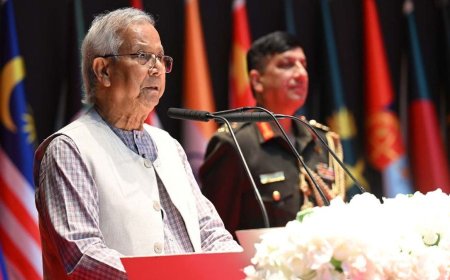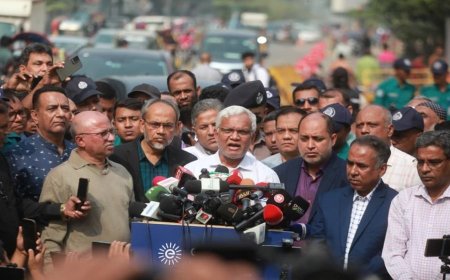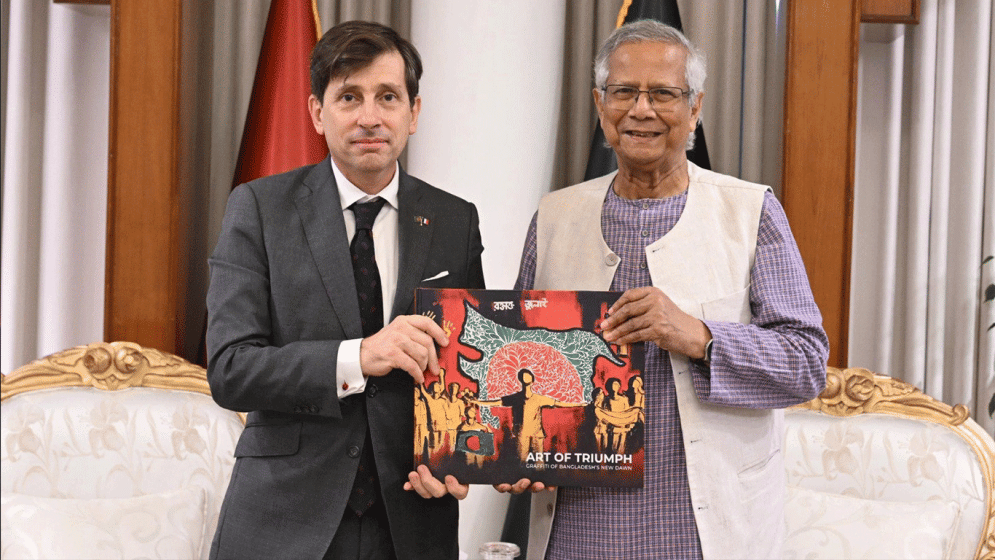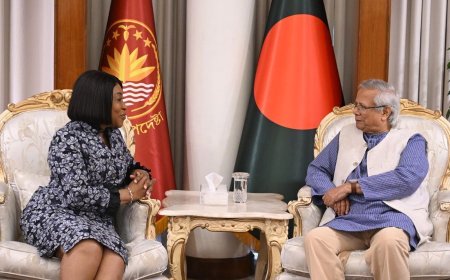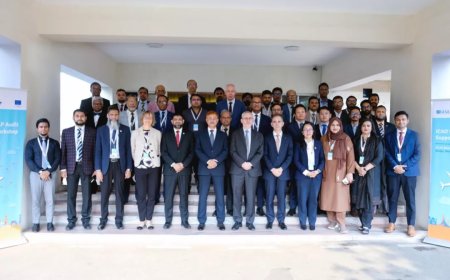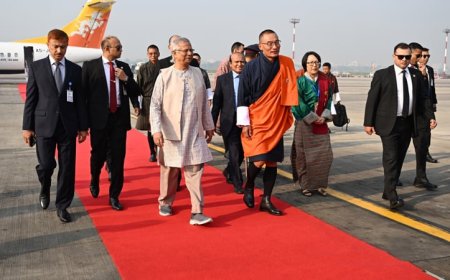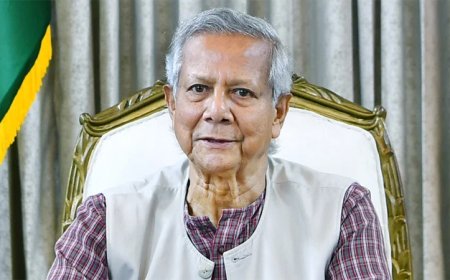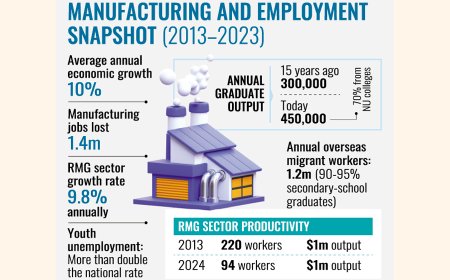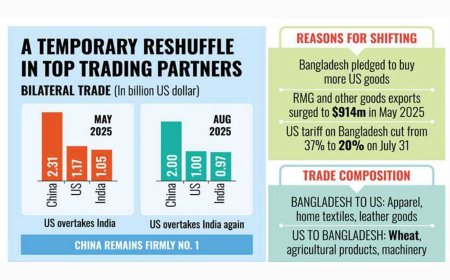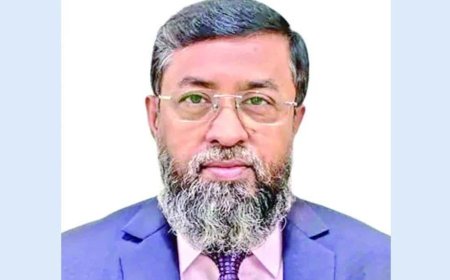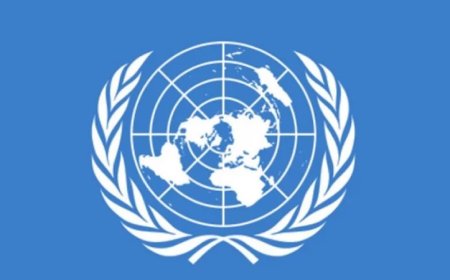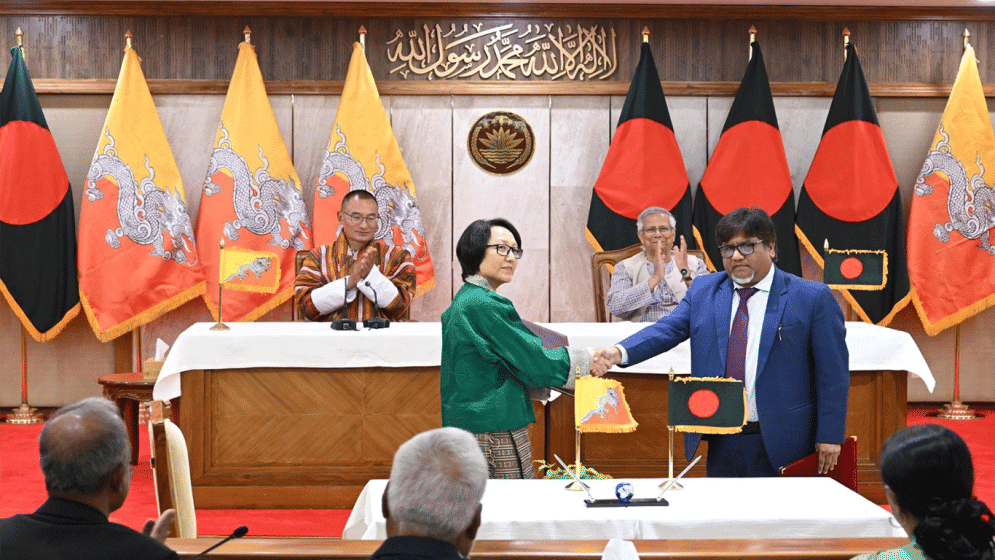EU disburses €23.5 million to strengthen social protection systems
Investing in robust and inclusive social protection systems is crucial ahead of LDC graduation, says EU Ambassador Miller.
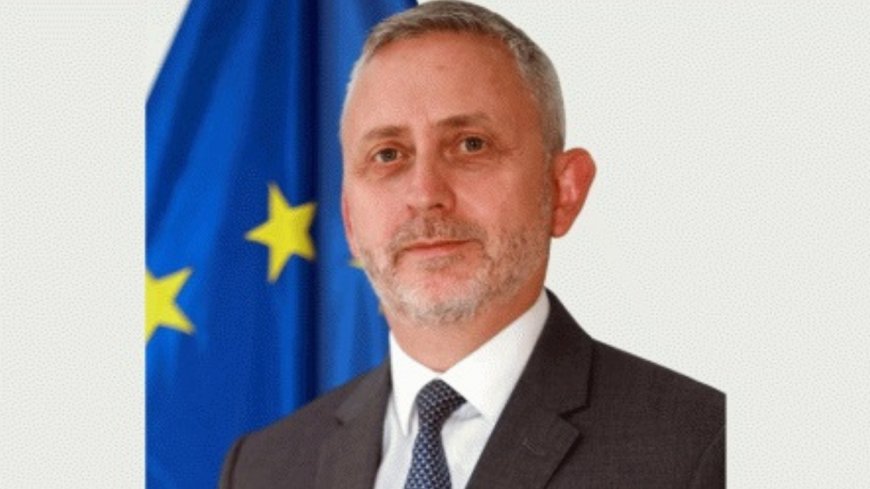
European Union (EU) Ambassador to Bangladesh, Michael Miller, on Tuesday underscored the importance of investing in robust and inclusive social protection systems to foster prosperity, stability, and social cohesion as Bangladesh approaches its graduation from Least Developed Country (LDC) status.
"Social protection is fundamentally about respect, dignity, and resilience," he said, adding that such systems help individuals navigate life’s uncertainties and rebuild public trust in state institutions.
To support these goals, the EU has disbursed €23.5 million to the Government of Bangladesh to enhance social protection. This grant recognises the progress made and encourages further implementation of the National Social Security Strategy (NSSS), especially for vulnerable populations amid ongoing challenges like high inflation and job losses in the garment industry.
The EU has been a longstanding partner in advancing Bangladesh’s social protection efforts—an essential pillar of inclusive economic development. Since 2019, it has provided €285 million in grants for this purpose, including €20 million from Germany. An additional €15 million is currently being allocated for technical assistance to facilitate reforms.
Thanks to EU support, over 90% of social cash benefits in Bangladesh are now paid directly into recipients’ accounts through the digital Government-to-Person (G2P) system. A Single Registry system has been launched, linking more than 30 programmes to enhance transparency, minimise duplication, and improve beneficiary targeting.
A Labour Information Management System is also being developed, already covering data on more than 650,000 workers in both the formal and informal sectors. Additionally, a pilot Employment Injury Scheme is providing lifelong pensions for workplace and commuting accidents and is expanding to include export processing zones.
For the first time, more than 1,200 unemployed workers from a single factory have received benefits under the government’s unemployment support programme.
The EU urged the government to reaffirm its reform commitments by adopting an updated National Social Security Strategy beyond 2026. This revised strategy should focus on better targeting, greater responsiveness to urban and climate vulnerabilities, and long-term, sustainable financing solutions.
The EU also advocates for tangible steps to make the social protection system more inclusive and effective. These include integrating the Finance Division’s Single Registry MIS with other national databases—such as the Tax Identification Number and Savings Certificate systems—and strengthening the Social Protection Programme for Unemployed and Distressed Workers to allow eligible individuals to register directly.
Moreover, the EU called for the expansion of contributory schemes for the working-age population and for improved quality in service delivery, to ensure all citizens can access adequate social protection throughout their lives.
Addressing macroeconomic and public financial management challenges—particularly by increasing domestic revenue mobilisation, which remains low—is also critical, the EU noted.
It further emphasised the importance of protecting human rights and enhancing civil society engagement in policy oversight.
This initiative aligns with the EU’s Global Gateway strategy and the Team Europe Initiative on Decent Work, which together support over 50 programmes and contribute €500 million to advance labour rights, skills development, and social protection in Bangladesh.
What's Your Reaction?








